Attacks on Darfur relief camps threaten bloody new chapter in war
Heavy gunfire and loud explosions drowned out the cries of women, children and the elderly trying to outrun one of the worst attacks in the country’s two-year-long civil war.
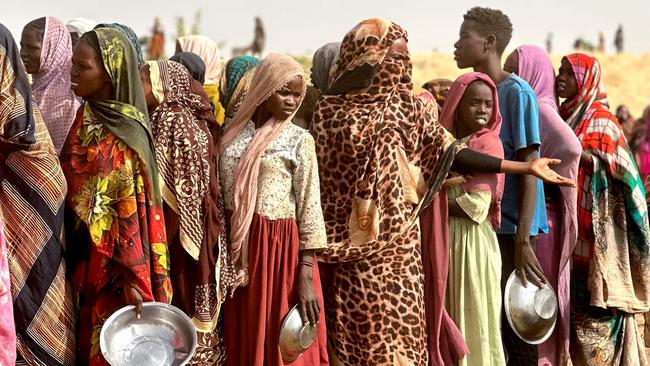
Hawa Adam spent hours hiding in a hole she dug inside her makeshift shelter at the Zamzam refugee camp in Sudan’s Darfur region. Heavy gunfire and loud explosions drowned out the cries of women, children and the elderly trying to outrun what was one of the worst attacks in the country’s two-year-long civil war.
Camp administrators said at least 500 people, mainly Black Sudanese, were killed when the ethnic-Arab Rapid Support Forces targeted the country’s largest displacement camp on April 12. The attack has heightened fears that the militia is attempting to consolidate its positions in Darfur after government forces ousted it from the capital, Khartoum. The dead included the entire staff of 10 belonging to Relief International Sudan, the US-funded charity that was running the last functioning clinic in the famine-stricken settlement.
After a lull in the shooting, Adam, a 28-year-old mother of two, stumbled from her hiding place, grabbed her children and made the three-day trek to the neighbouring village of Tawila. Along the way, Adam, a member of Sudan’s Masalit community, was separated from her husband.
“I don’t know where my husband is,” she said by phone from Tawila. “We are extremely exhausted. Our feet are wounded from the journey and we have no food or water.”
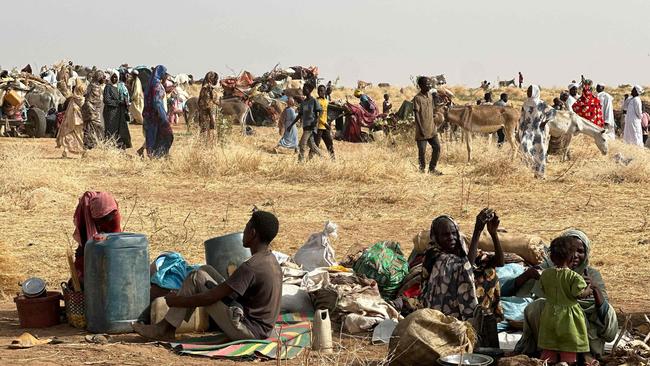
The attack threatens to open a new chapter in the conflict, which was triggered by a power struggle between Sudan’s de facto president, Lt. Gen. Abdel Fattah al-Burhan, and his former deputy and RSF commander, Lt. Gen. Mohamed Hamdan Dagalo. The fighting has pulled in regional powers, with the United Arab Emirates arming the RSF and Iran backing the military, The Wall Street Journal has previously reported.
It has also split the strategic nation into two halves, with the military holding sway in much of the east and north, while the RSF, after initially commanding much of Khartoum, retreated to Darfur, where it already has a bloody history.
Dagalo’s force grew out of the Janjaweed militias, dominated by Arab fighters who conducted attacks against Black ethnic groups in the region in the early 2000s. That campaign left 200,000 people dead, according to the United Nations, and prompted criminal charges against Sudan’s then-leader, Omar al-Bashir, in the International Criminal Court in The Hague.
In January, the US accused the RSF of committing genocide in Darfur and has also accused the Sudanese military of attacking civilians. On Tuesday, US State Department spokeswoman Tammy Bruce condemned the RSF assault on refugee camps in the area around El Fasher, the capital of the North Darfur region.
“The United States condemns in the strongest possible terms the RSF’s continued escalation of attacks on El Fasher ,” she said “The belligerents must uphold their obligations under international humanitarian law and must be held accountable.”
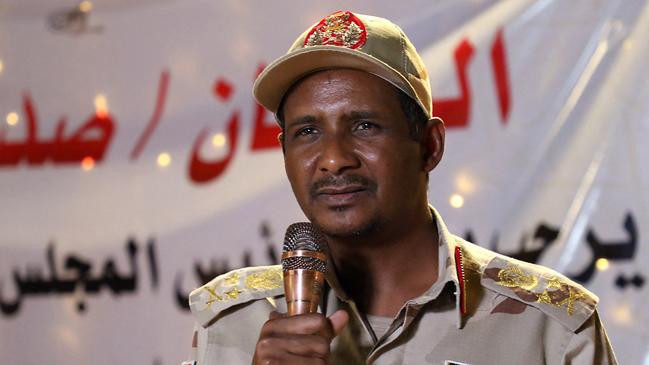
At an international conference in London called to address the conflict, world powers, including the UK and European Union, pledged $592 million ($930m) to support the 30 million Sudanese in need of aid, including 12 million who have been forced out of their homes. But rights groups called for more concrete steps to end the conflict.
“The host’s closing statement didn’t even mention the massacre unfolding in El Fasher,” said Will Davies, head of global campaign group Avaaz in Sudan. “At best, this was a vanity project for leaders who have been asleep at the wheel.”
A spokeswoman for the British Foreign Ministry said the UK continues all diplomatic avenues to end the violence in Sudan.
After overrunning Zamzam, the RSF launched fierce ground and aerial attacks on other refugee camps close to El Fasher, displacing more than 400,000 residents, according to the UN. The US last year pointed to estimates that 150,000 Sudanese have been killed in the current conflict.
Yet the scale of the RSF’s recent attacks suggests the violence may worsen, according to aid officials.
The Yale School of Public Health’s Humanitarian Research Lab posted satellite images showing burning structures and bodies of civilians who appeared to have been executed, lining the streets of the Zamzam camp. After breaching the perimeter of the camp over the weekend, the RSF set on fire the camp’s main market and a community kitchen that has been serving meals to the camp’s starving residents. Fleeing women were intercepted at checkpoints. Young men and boys as young as 10 were either detained or executed, according to aid officials and witnesses.
“Many are prevented from escaping now, mostly youth,” said a spokesman for the UN Office for the Coordination of Humanitarian Affairs. “Those fleeing are going to surrounding localities including El Fasher, Dar es Salaam and Tawila.”
Among those who managed to escape was an elderly man who fled northward to link up with his son, who works as a health worker at El Fasher Hospital. As he made his way out of the besieged camp, the man and other residents hid inside a mosque, but RSF fighters entered and robbed them of their phones and all their belongings, his son said.
“That’s what happens to the elderly. As for the youth, they are either detained or killed,” the health worker said. “On the road, many people are subjected to searches, humiliation, and beatings.”
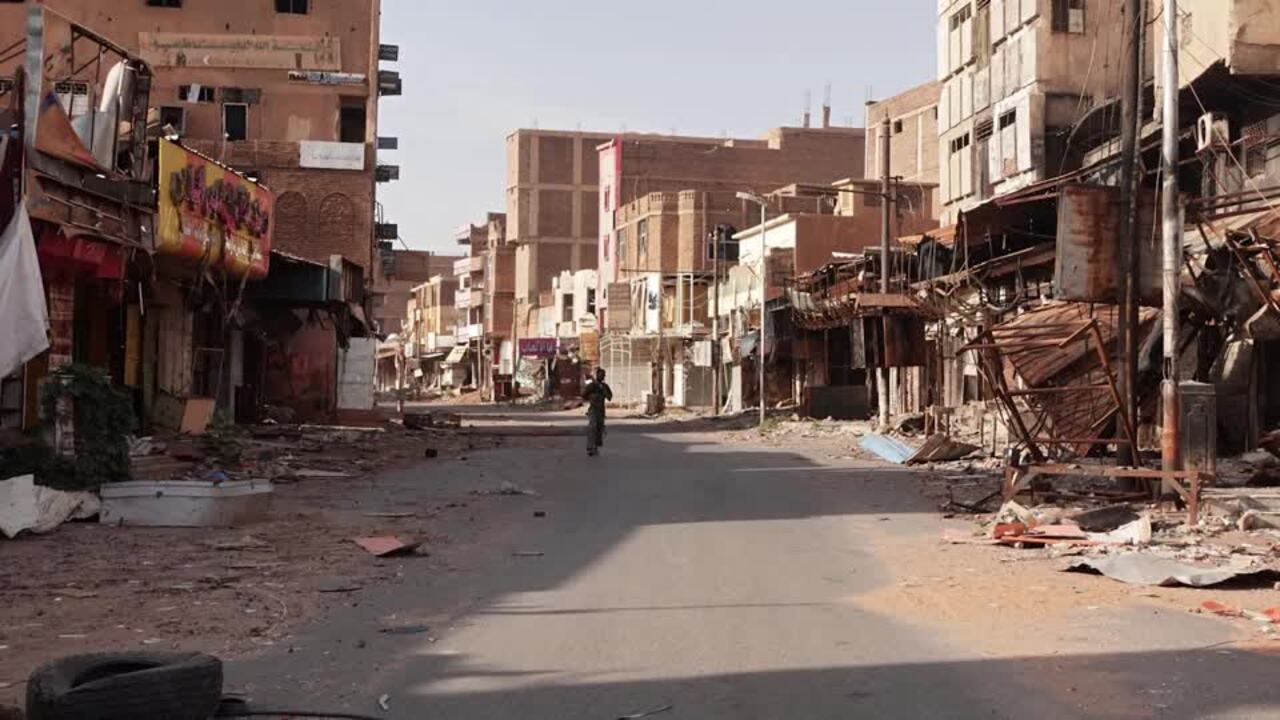
A spokesman for RSF said his group targeted the camp because the Sudanese military was using it as a garrison. He denied accusations of killing civilians.
Mini Minawi, the governor of Darfur, said the RSF began the attack on Zamzam just as an aid convoy was preparing to deliver food and medical supplies.
Dozens of people have been killed in the past two days after fighters shelled Abu Shouk, another camp north of El Fasher. Shayna Lewis, a Sudan expert and campaigner at US non-profit Preventing and Ending Mass Atrocities, said a large-scale ethnic massacre is possible if the RSF overruns El Fasher.
“The international community has known for months that an RSF assault on Zamzam was looming,” she said. “Words of condemnation will not save lives, civilian protection action is needed today.”
Wall Street Journal


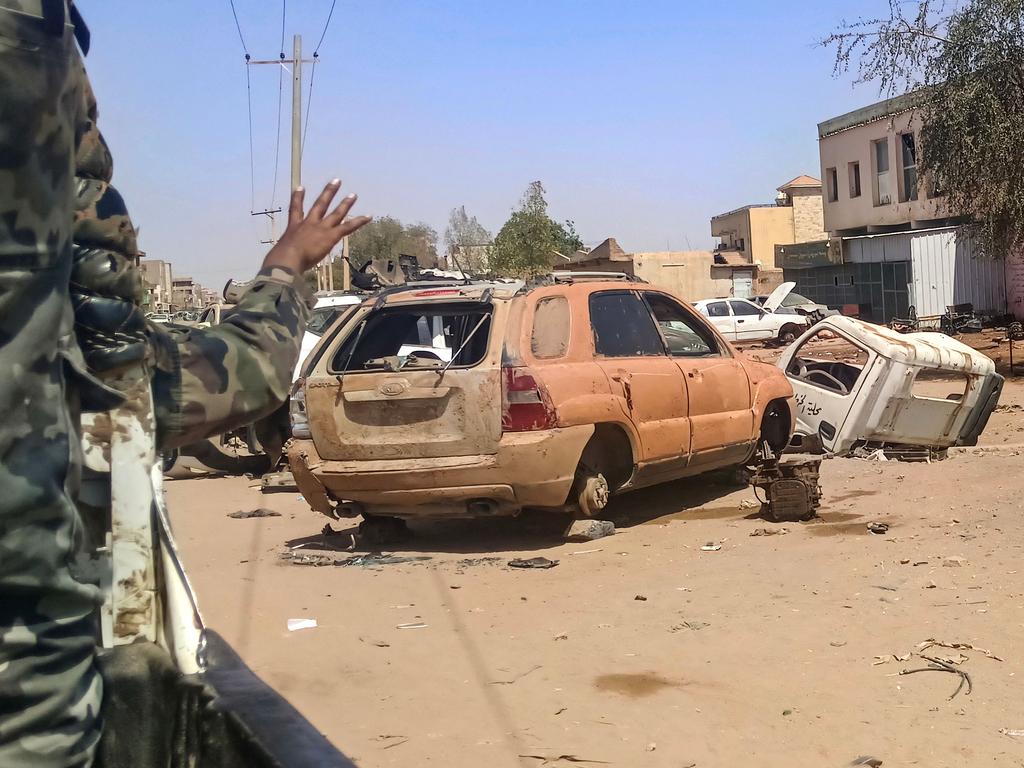


To join the conversation, please log in. Don't have an account? Register
Join the conversation, you are commenting as Logout